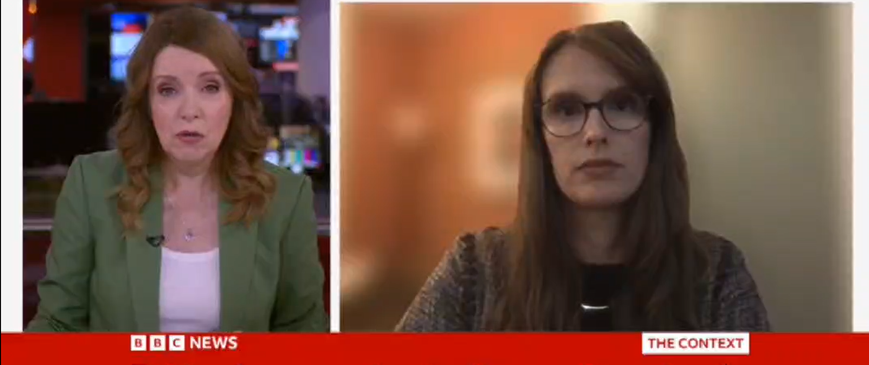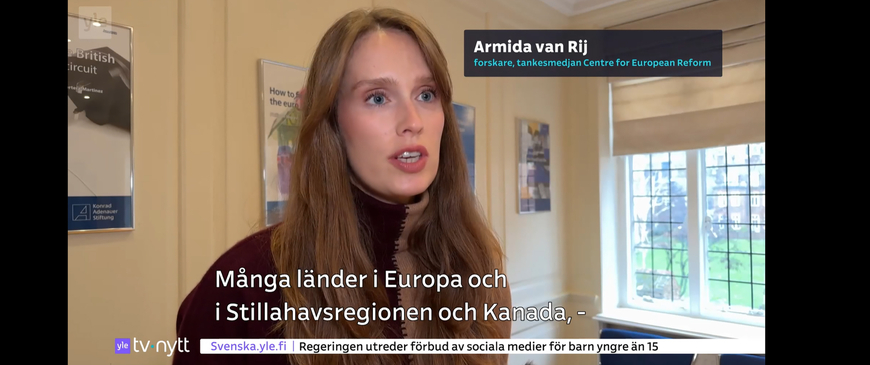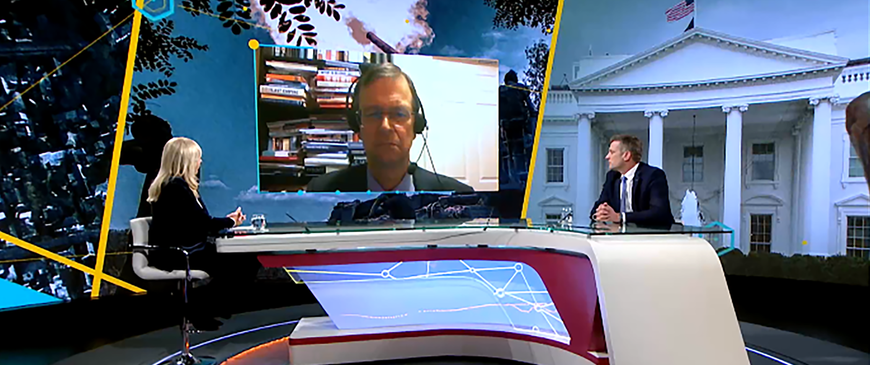Press
"El peor momento desde la II Guerra"
15 November 2011
El Pais
"Pienso que estamos en terreno muy peligroso, y que la eurozona debe actuar de inmediato", dijo Simon Tilford, economista en jefe del CER.
Path out of eurozone crisis spells prolonged economic pain
14 November 2011
Reuters
"On current policy trends, a wave of sovereign defaults and bank failures are unavoidable. Much of the currency union faces depression and deflation," wrote Simon Tilford and Philip Whyte in a new paper for the CER.
Greek, Italian plans bypass voters
14 November 2011
USA Today
"Greece has been asked to attempt the impossible," said Simon Tilford, chief economist with the CER in London. "The strategy, the fiscal austerity program over the last two years, has failed and has pushed the economy into a very deep slump. They are now being asked to take more of the medicine that has failed to treat the disease and has actually become part of the problem."
These bailouts aren't democracy. What's worse, they aren't even a rescue
13 November 2011
The Observer
In a CER Simon Tilford and Philip Whyte said: "The punishing (and self-defeating) economic adjustments imposed on debtor countries contrasts with the self-righteous complacency shown in the creditor countries."
Even as governments act, time runs short for euro
13 November 2011
The New York Times
"I think we're in very dangerous territory, and the euro zone has to act soon," said Simon Tilford of the CER. "There isn't really a muddle-through option right now."
The bonds that tie Italy down may destroy crisis-hit euro
13 November 2011
The Irish Independent
"It is now clear that a currency shared by fiscally sovereign member-states is more vulnerable to losses of confidence than a monetary union that is more fully integrated," said the CER in a paper published last week.
On the record
13 November 2011
The New York Times
"Not everyone can be like Germany. The world as a whole doesn't trade with the moon," said Philip Whyte of the CER, on other countries' resentment as Germany dictates austerity measures that its own robust economy does not require.
A euro break-up is hard – but not impossible
13 November 2011
The Sunday Times
It is clear that the eurozone will remain an unstable, crisis-prone arrangement unless critical steps are taken to place it on a more sustainable institutional footing," write Simon Tilford and Philp Whyte in a hard-hitting essay for the pro-EU CER.
The week the euro went up in flames
12 November 2011
The Telegraph
As Simon Tilford and Philip Whyte put it last week in an essay for the CER: "A familiar pattern has now set in. Under market duress, leaders hold an emergency summit and announce an agreement designed to restore confidence once and for all."
Dream of United Europe frays at the edges
12 November 2011
Sydney Morning Herald
"The Greek economy is in free fall, having contracted 15 per cent under existing austerity measures", says Simon Tilford, the chief economist with the CER in London.
Lifeboats out as EU flounders
12 November 2011
The Age
The Greek economy is in free fall, having contracted 15 per cent under existing austerity measures, said Simon Tilford, chief economist with the CER in London. ... ''Its economy is three times as big as the Irish, Greek and Portuguese economies put together,'' said Mr Tilford. If Greece leaves, it will make departures by others much more likely; and if Italy left, ''France would be under huge pressure ... 'France assumes that if Greece and one or two other states left, that its status as a core part of the eurozone would be secure. But that's far from clear.
Anti-EU backlash - Beyond the fringe
11 November 2011
The Economist
"Public opinion is a new actor in the EU," says Charles Grant, director of the CER. "It limits what technocrats can do."
Europe's growth forecast is lowered
11 November 2011
The New York Times
"The slowdown in economic activity is compounding investors' concerns about debt sustainability," said Simon Tilford, chief economist at the CER in London. "In the south of Europe we have very high borrowing costs and no economic growth. That's a lethal combination."
Path out of eurozone crisis spells prolonged economic pain
11 November 2011
Reuters
"On current policy trends, a wave of sovereign defaults and bank failures are unavoidable. Much of the currency union faces depression and deflation," write Simon Tilford and Philip Whyte in a new paper for the CER think-tank. ... What is needed, Tilford and Whyte argue, is easier policy by the ECB, including a higher inflation target of 3 percent that would enable deficit countries to regain competitiveness by holding down wage growth without slumping into deflation. ... "A new fiscal regime needs to be accompanied by a symmetric imbalances procedure.
Europe's future: division or unity?
10 November 2011
Public Service Europe
But simply creating stricter rules to enforce discipline will not solve the problem, a new study by analysts at the CER claims. In a report published today Simon Tilford and Philip Whyte argue that the crisis not a result of the "errant behaviour" of a few countries and that monetary union held together by a set of rules rather than full fiscal union is "deeply unstable". They write: "The eurozone will remain an unstable, crisis-prone arrangement unless critical steps are taken to place it on a more sustainable institutional footing.
Leaders tumble in crisis as Europe cracks at seams
09 November 2011
Edmonton Journal
"We have come to the end of a unique period of political and economic consensus," Hugo Brady of the CER told AFP. ... "Where do we go if we don't save the euro? Will we want further European integration?
Unemployment rates will rise, analysts say
09 November 2011
The Prague Post
"Households are not spending, firms are not spending, and governments are making cuts," said Simon Tilford, chief economist at the CER in London. "There is no doubt that fiscal austerity is exacerbating economic weakness." ... Tilford points to Germany's ability to control wage growth in the past decade as the primary factor in relatively strong economic growth numbers through early this year, a phenomenon that saw corporate profits soar as a percentage of GDP but likely saw those profits poorly distributed.
NATO's noble words go for naught
07 November 2011
The New York Times
"NATO officials are working on list of about 150 areas where NATO armed forces could strengthen their joint efforts," argued Clara Marina O'Donnell, a security analyst at the CER in London in a recently published paper.
France unveils tough austerity plan
07 November 2011
Voice of America
"The [French] recovery has already ground to a halt and it's sliding back into a recession," he said. "That is not the time that any government should be cutting spending. All that risks doing is pushing the economy further into recession," said Simon Tilford, chief economist at the CER.
Europe's economic struggles continue despite Greek deal
07 November 2011
Voice of America
Simon Tilford of the CER, says the ECB must step in - something its top officials are reluctant to do. "The problem at the moment is that we’re in a period of exceptionally weak economic growth. We're going through unprecedented economic weakness."










